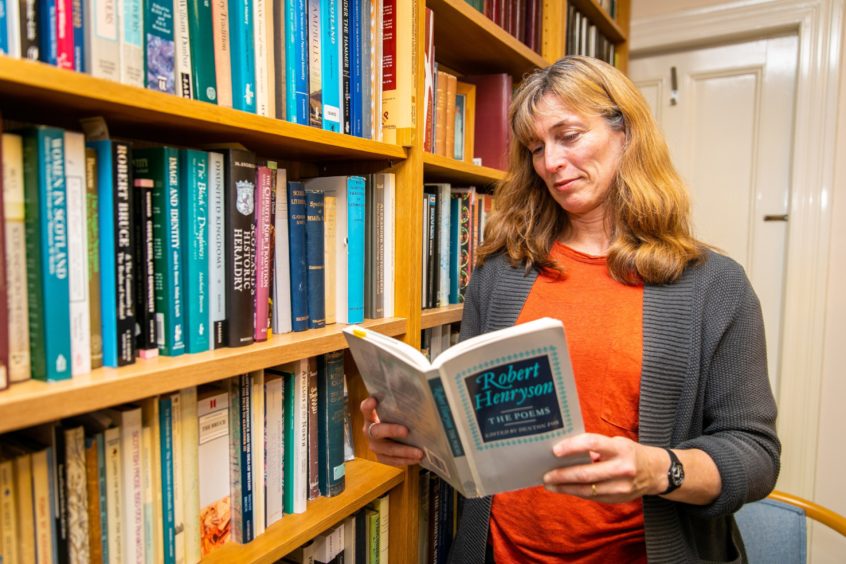A university professor from Fife is to write the first full-length history of medieval Scots literature as it developed in the then-independent kingdom of Scotland more than 600 years ago.
Professor Rhiannon Purdie, of the School of English at St Andrews University, has described the opportunity as “the dream come true” after being one of three academics to receive major research fellowships totalling almost £320,000 from the Leverhulme Trust.
The two-year appointment allow the professor to write the first concise history on the subject.
It will also involve her teaming up with Scottish Qualifications Authority (SQA) to reintroduce Older Scots poetry to the Higher and Advanced Higher English curriculum, in a project informally dubbed ‘Older Scots for Modern Scots’.
Professor Purdie, who has been awarded £92,064, said she aims to redress the notion that most senior pupils of English in Scotland today will have heard of the English poet Chaucer, but almost none could name a single poet from Scotland’s own medieval literary canon.
“For years there have been many essays and articles written on ancient Scottish literature but no single history and that’s what I’ve wanted to do for many years,” said the 52-year-old who has taught at St Andrews for the past 10 years.
“The earliest literature written in Scots language come from the likes of poet John Barbour and date from the 14th century close to the period Chaucer was writing.
“This opportunity will allow me to delve further into earliest beginnings of the Scot’s and modern English language at a time when Scotland was an independent country and I find that truly fascinating.”
She added: “To have my application accepted and given this rare and privileged opportunity really is a dream come true.”
Awards of £113,714 have also been given to Professor Jessica Brown of the School of Philosophical, Anthropological and Film Studies and Dr Agnès Bos, Director of Museum and Gallery Studies in the School of Art History at St Andrews.
Professor Brown will investigate the moral responsibility of groups such as companies and governments, while Dr Bos is to research the French Royal Order of the Holy Spirit, which was founded in 1578 by the French king Henri III, and disbanded in 1830.
Unlike similar orders such as the Golden Fleece and the Garter the French Royal Order of the Holy Spirit has never been the subject of a comprehensive study.
She will curate a major exhibition dedicated to this order, to be held at the Louvre in 2023, and will also complete a book focusing on the artistic patronage of the order.
The Leverhulme Trust was established by the Will of William Hesketh Lever, the founder of Lever Brothers. Since 1925 the Trust has provided grants and scholarships for research and education. Today, it is one of the largest all-subject providers of research funding in the UK, distributing approximately £80m a year.












